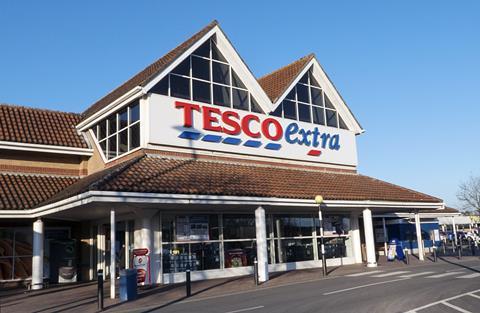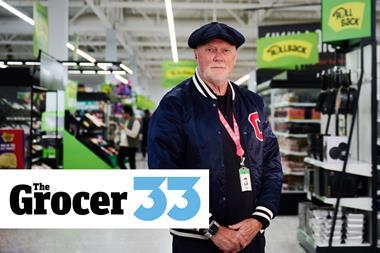
Rachel Reeves has been warned yet again by supermarket chiefs of the danger of driving up food prices if she heaps more tax on retail in the budget.
The chiefs of nine of the UK’s biggest supermarkets have written to the Chancellor reiterating their warning that ordinary households will be impacted unless she excludes shops from a proposed business rates surtax on the largest commercial properties from 2026.
Reeves is under intense pressure from retail over the planned business rates surtax, which is intended to pay for a rates discount for smaller properties in retail, hospitality and leisure.
The proposals will see all business properties with a rateable value over £500,000 hit with the surtax. The extra tax revenue raised will pay for a reduction in business rates for properties with a rateable value below £500,000 in retail, hospitality and leisure sectors specifically.
Calls have been growing in recent weeks from the convenience sector – including The Co-op – for small shops to be given the maximum discount possible. At the same time, major retailers with bigger stores have been demanding exemption from the surtax that is intended to subsidise the discount for small shops.
Supermarket chiefs argue the business rates reforms can remain revenue-neutral if the Treasury introduces an even bigger surtax on the largest properties in sectors other than retail, such as offices and industrial plants.
The letter is signed by the bosses of Tesco, Sainsbury’s, Asda, Aldi, Morrisons, Lidl, M&S, Waitrose and Iceland – but not Co-op, which recently warned tens of thousands of businesses would close without the full discount for small shops.
£7bn cost of last year’s budget
“The last budget introduced over £7bn in additional costs on retailers, from increases to employer National Insurance contributions and employment costs, to the new extended producer responsibility packaging tax and rise in the business rates multiplier,” the letter from supermarket chiefs said.
“Supermarkets, given our large labour force of almost a million colleagues, have been disproportionately affected.
“The UK grocery market is highly competitive with narrow profit margins that are well below those found in most other industries. Consumers benefit from some of the lowest food prices in the developed world. And while we continuously seek efficiencies, our ability to absorb additional costs is diminishing.
“If the industry faces higher taxes in the coming budget – such as being included in the new surtax on business rates – our ability to deliver value for our customers will become even more challenging and it will be households who inevitably feel the impact.
“Given the costs currently falling on the industry, including from the last budget, high food inflation is likely to persist into 2026. This is not something that we would want to see prolonged by any measure in the budget.
“Large retail premises are a tiny proportion of all stores yet account for a third of retail’s total business rates bill, meaning another significant rise could push food inflation even higher.
“While we are pleased the government is committed to supporting smaller retail properties, it is equally important that large shops are excluded from the proposed business rates surtax.
“This can be done at no cost to the Treasury and with only a marginal increase in the new higher rate for large non-retail properties, for whom rates is a much smaller proportion of their costs.”
Read more:
-
Business rates reforms put 400 large stores at risk of closure, BRC warns
-
Supermarket chiefs tell Rachel Reeves planned business rates hike is their top concern
-
60,000 small shops at risk of closure without promised business rates discount, warns Co-op
-
Co-op Wholesale demands maximum business rate support for small shops
-
M&S chief Stuart Machin sets out budget demands for Rachel Reeves
Helen Dickinson, CEO of the BRC, which organised the letter, said: “The Chancellor has rightly made tackling inflation her top priority, and with food inflation stubbornly high, ensuring retail’s rates burden doesn’t rise further would be one of the simplest ways to help.
“This would not cost the taxpayer a penny, with large office blocks and industrial plants, for whom business rates is a smaller proportion of their costs, paying a little more.”
The letter, sent to Reeves on 22 October, comes despite recent indications of confidence from retail chiefs that she has already listened to their plea ahead of the 26 November budget.
Lidl GB Ryan McDonnell told The Grocer last week: “We think those discussions have been quite productive. I’m quite hopeful that the government will see sense around not inflicting more inflationary pressure on business.”



















No comments yet